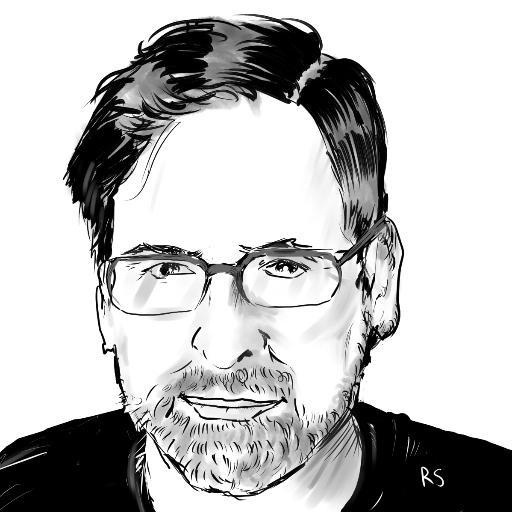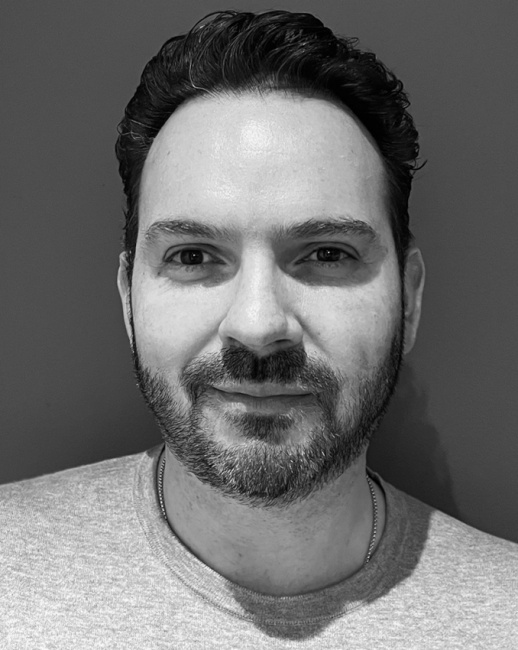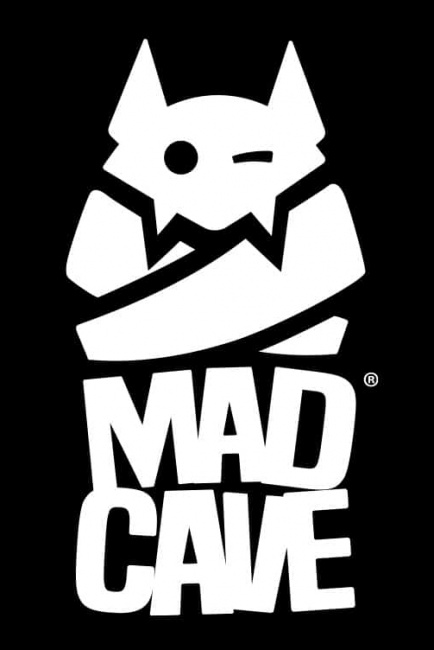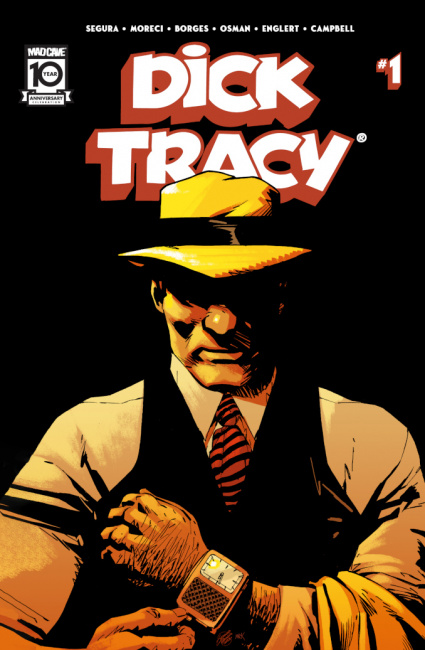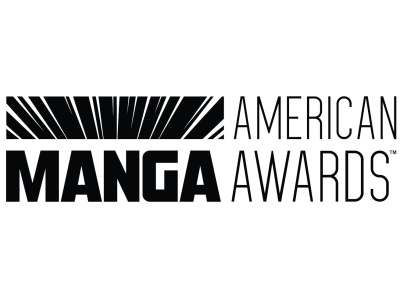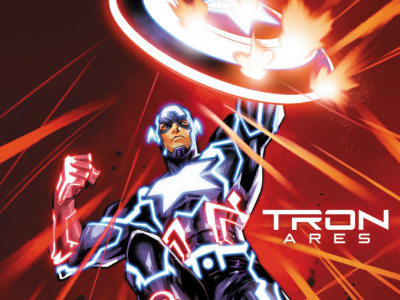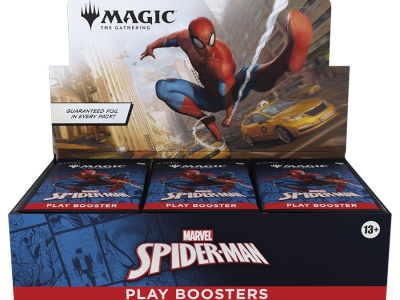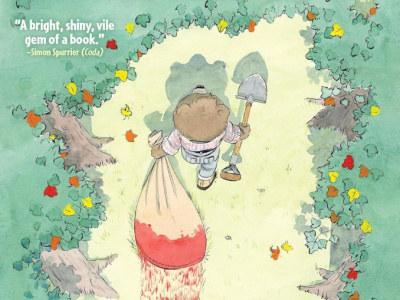Last week, Mad Cave Studios announced its Papercutz label will be producing a series of graphic novels under license from Disney, including popular properties like Encanto, 101 Dalmatians, and Phineas & Ferb (see "Papercutz Gets Disney"). The Florida-based publisher is also celebrating its 10th anniversary in business this year.
I had a chance to speak with Mad Cave founder/CEO Mark London about his reflections on a decade in the comics industry, what he’s seeing in today’s market, and what’s ahead. Our conversation has been edited for length and clarity.
How’s business? How would you categorize where Mad Cave is going at the moment?
Mark London: As you know, it’s not easy right now. There are a lot of challenges when it comes to giving people a better product. There is too much product out there. It’s hard for people to differentiate. Companies are pumping out content left and right, and it’s becoming overloaded, so it’s hard to stand out. That’s why you really need to make an impact at the point of purchase, whether that’s retail or digital.
It’s brutal. Look what has happened with other publishers that started off strong. They're not with us anymore, and I get it, because it's super hard. But I think that if you just continue putting your best foot forward, if you stick to your core values, which is treating people like family and not only your employees, that you work with your creators, your talent, your retailers, everybody, you will eventually break through. We want to deliver the best that goes out into the world, whether from Mad Cave, Maverick or Papercutz. The only way that we can do that is by being transparent with everybody, by not being an a-hole and putting the best content out there. Rome wasn’t built in a day. We’re in it for the long run.
Do you think that there is more that publishers could be doing to help shore up things on the retail side and vice versa? Do you think there's more that can be done within the industry ecosystem to help pull everybody up in a in a tough time like this?
I think retailers have to try to understand that the market is changing, people’s tastes are changing, there's more to comic books than what we used to have in the 80s and 90s. People are smarter now. They want content that actually represents them, and don’t want to waste their time with filler. They’re being very savvy. And as publishers, we do have to do more in terms of our content, with the quality of our content, how we curate our content.
But it has to be both ways. We need the retailer support in being able expand the market. Retailers, what middle grade books are you pushing? It’s not just about Batman and Spider-Man. There's a whole new target audience there, which is also the future of your readership, which you have to nurture. That's what we are trying to do with Mad Cave. So I think that if the retailers don’t shift their mentality and understand that we have a different market, we're going to see more retailers go out of business. That's the reality.
What are some of the highs and lows of the past decade?
Well, definitely the high is coming from a publisher that was just publishing four titles, all written by myself, to now working with 350 different freelancers on a monthly basis, 35 employees, working with Simon and Schuster, winning a license from Disney, and getting an opportunity to work on classics like Flash Gordon and Dick Tracy.
Another tremendous high was our talent search, which we started almost five years ago. We were not a publisher on anybody's radar, but still we wanted to do a talent search because we knew how passionate we were, and we knew how people were passionate also, but it was so difficult for them to have a voice or a presence in the market. So we did our talent search. We continue doing it each year, trying to give everybody an opportunity to shine.
Just breaking through was a high point. Every door was shut in my face. People were asking, "Are you distributed by Diamond? No? Well, who’s your writer, who’s your talent, do you have a well-known IP?" Nothing. So then we have Nottingham, which was basically home grown in the office by David Hazan and Shane Connery Volk. That was pure joy. And that's why I really love publishing.
The darkest time was 2020. That was bad for everyone, it felt like the end. The industry basically collapsed because Diamond decided to shut down for three months. Every single day, the question was "Are we wasting our time?" We don't even have the freaking distributor that is supposed to have our backs, so what are we supposed to do? We decided to go to Simon & Shuster, and why we work with Lunar now, is because we feel more supported.
I think that our success has only been possible because we stuck to our guns when everybody decided to put their pencils down and everybody shut down their operation for a few months. At Mad Cave, we just ramped up production. We decided to start getting more titles, a lot of the titles that you see that we're releasing. We were able to catch up and do things during the pandemic that allowed us to climb out of this pit that we were in. There have been ups and downs, but nothing compares to the pandemic and the climate that we lived, because everything was doom and gloom. Everybody: retailers, creators, even our staff. But we never missed a day.
How has the Papercutz acquisition worked out so far?
When we acquired them during the pandemic, there were a lot of crazy numbers. Now, things have started to come down a little bit. There has definitely been a correction of expectations on the part of sales. But on the other hand, we shifted distributors from Macmillan to Simon and Schuster, and when we acquired Papercutz, we had to shut down the operation internally for six months. That was brutal. So, the numbers are not where I want them to be now, but I think with Disney coming on board with all the different IPs, plus the ability to create our own homegrown content that we're working on, I think that if you ask me that question again next year, probably I'm going to be happier answering it.
Do you still believe in a strategy of growth through acquisition if something comes along that makes sense?
100 percent. If building a publisher from the ground up is gonna take between 5 to 8 years, and I've seen it, I've lived it, then obviously an acquisition shortens that gap in many ways. If another opportunity would come, maybe the fourth leg of the stool, I also have my sights on manga. It's really interesting on the publishing side of things. It is not a fad. I grew up with manga that people are catching on to now. It's amazing. I think that you have to try to cover all demographics if you're a publisher. And that is something that we that we see moving forward. There's no denying that manga does offer very strong content.
How important is taking your IP into other media?
That’s always flattering when your content transcends comics and then goes somewhere else, into games or movies or animation. But you can’t be distracted thinking that’s going to pay the bills. Hollywood is a beast of its own. It’s very complicated to navigate. Even when titles get optioned, what does that even mean? You think you’re going to break the bank, but often, nothing happens and the rights revert back. You can’t lose sight of who you are as a publisher, getting distracted that this is going to turn into a movie or something. We’ve seen publishers go that route and we’ve seen how that story ends.
What are some pieces of advice you’d give to yourself if you could go back ten years?
Don’t stress too much! Don’t take everything so personally. Keep working, because no one will give you the time of day until you have something to show for it. So take your time, let things evolve, and then people will be impressed that you did it right and were consistent.
The opinions expressed in this column are solely those of the writer, and do not necessarily reflect the views of the editorial staff of ICv2.com.
Rob Salkowitz (@robsalk) is the author of Comic-Con and the Business of Pop Culture and an Eisner-Award nominee.
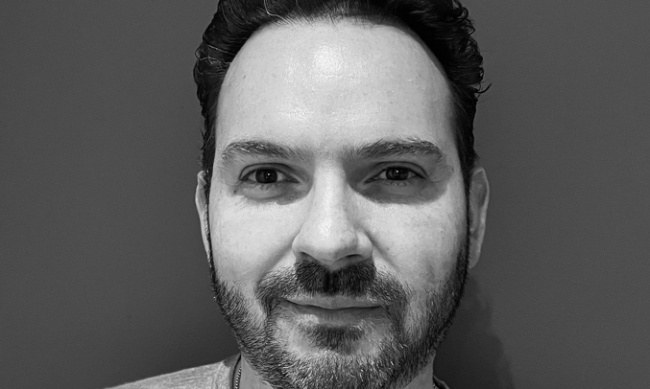
Column by Rob Salkowitz
Posted by Rob Salkowitz on February 20, 2024 @ 2:04 am CT
MORE COMICS
At AnimeNYC
August 22, 2025
The winners of the 2025 American Manga Awards, organized by AnimeNYC owner LeftField Media and Japan Society, were announced in a ceremony at AnimeNYC in New York on August 21.
From Marvel Comics
August 22, 2025
This October, Marvel Comics celebrates the release of TRON: Ares with new variant covers.
MORE COLUMNS
Column by Jeffrey Dohm-Sanchez
August 21, 2025
ICv2 Managing Editor Jeffrey Dohm-Sanchez continues to take a look at some of the issues revolving around Universes Beyond products.
Column by Rob Salkowitz
August 19, 2025
For Horror Week, columnist Rob Salkowitz asks whether the horror boom can help get us through a moment full of woe and dread.



